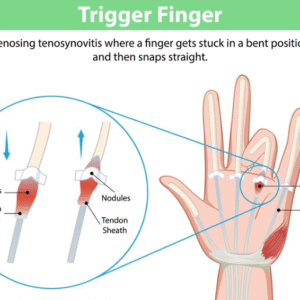Plastic surgery has been common for decades, but people have become more open to talking about their personal experiences with plastic surgery. Because of this, we hear more about what actually goes on before and after the surgery. This can help others become more comfortable with the idea of getting plastic surgery for themselves if they have a better idea of what to expect.
One enhancement many people have gotten interested in is butt implants. The number of people getting butt implants done has significantly increased over the past decade as styles and trends change. By getting butt implants, you can add more volume to that area through a few different methods.
Of course, no surgery is completely without risk. While plastic surgeries are typically very safe procedure, there are still many horror stories about operations that go wrong and botched bodies. Like with any surgery, you might find yourself worrying about whether or not a butt implant surgery is safe.
Getting butt implants can be a very invasive procedure, but it is very safe. The American Society for Aesthetic Plastic Surgery has a 95.4 patient satisfaction rate for this procedure. Still, there are a few factors that could impact the safety of getting butt implants.
Types of implants
The goal of all butt implants is too add volume, but there are a few different ways to achieve it. It’s also important to remember that most butt implants will take around eight weeks to recover depending on the patient.
Fat transfer
Fat transfer is more commonly known as a Brazilian butt lift and is extremely popular. During a Brazilian butt lift, the surgeon will remove fat from one area of the body to add to the buttocks. Fat transfers can also be combined with other methods to achieve your desired results. While this can provide noticeable results, it might not be useful for a person who doesn’t have much fat on their body. Fat transfers can become asymmetric over time due to the body naturally absorbing the fat.
Injections
For minor enhancements, many people choose to get injections of Sculptra, hydrogel, or silicone. Injections for butt implants are not approved by the FDA. Sculptra injections add small amounts of volume on their own and may help the body naturally produce collagen in the area after the procedure for more volume.
Hydrogel and silicone injections are not recommended as safe butt implants. Hydrogel and silicone injections are often performed illegally and can be very dangerous. Aside from being performed by some untrained and unqualified, they can also move from the injection site and can cause hard lumps or travel into the blood vessels.
Silicone implants
Silicone implants can provide results that fat transfer and injections can’t. Butt implants done with silicone implants tend to be more rounded than with the other options. During this procedure, a silicone implant is placed into an incision on the buttock. While this is a safe and common procedure, there is the possibility that the silicone implants can move out of place and require more surgery.
Who should get butt implants?
Butt implants are generally very safe, but that doesn’t mean they’re recommended for everyone. There are some people who could have safer or more effective butt implants due to a number of factors. Your doctor will be able to determine whether or not you should get butt implants. The ideal candidate for butt implants is:
- In generally good health.
- Experiencing sagging or flatness.
- Doesn’t use tobacco products.
- Already at a healthy weight.
- Has realistic expectations of the results.
Risks of butt implants
Many of the risks that can come from butt implants are risks for all surgical procedures, but some are more specific for this surgery. A few risks that are common with butt implants are:
- Anesthesia risks
- Bleeding after surgery
- Infection
- Fat tissue dying after surgery
- Fluid accumulation
- Pain
- Scarring
- Skin discoloration
- Skin looseness
- Numbness
When you’re looking to get butt implants, one of the most important things is to make you’re having it done in a safe environment, whether it’s in a hospital or an office setting. You should be sure of your surgeon’s experience and credentials beforehand to ensure that they’re qualified to perform this procedure.






